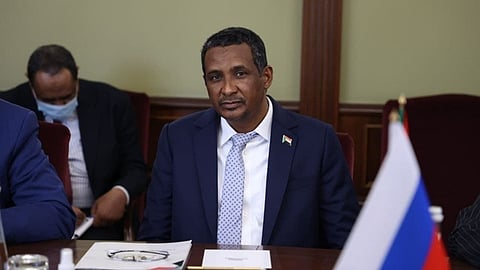

Two years into a devastating conflict that has killed tens of thousands, Sudan’s paramilitary Rapid Support Forces (RSF) announced the formation of a rival government to challenge the army-backed administration it has been fighting since April 2023. The United Nations has labeled the war the world’s worst humanitarian crisis, with over 13 million people displaced—including 3.5 million who have fled abroad—and no peace agreement in sight.
Led by Mohamed Hamdan Daglo, the RSF declared its new "Government of Peace and Unity" in a Telegram statement, positioning itself as a broad coalition representing Sudan’s diverse regions. The move has heightened fears of a permanent partition of Africa’s third-largest country.
Foreign ministers from 20 countries convened in London this week to revive stalled peace talks, co-hosted by the U.K., France, and Germany. Notably, neither the Sudanese Armed Forces (SAF)—the de facto government—nor the RSF were invited. Both factions, once allies in a 2021 coup that ousted Sudan’s transitional civilian government, are now locked in a brutal war marked by widespread atrocities.
Sudanese officials have criticized the exclusion of local actors from the talks, as well as the involvement of nations accused of exacerbating the conflict. Evidence suggests the United Arab Emirates has supplied arms to the RSF, which stands accused of genocide against African ethnic groups in Darfur. Last week, Sudan filed a case against the UAE at the International Court of Justice (ICJ), alleging complicity in atrocities.
While both sides have been accused of war crimes, rights groups attribute the majority of abuses—including systematic sexual violence, attacks on medical facilities, and mass killings—to the RSF. The U.S. and U.N. have condemned the paramilitary group for committing acts of genocide, particularly against the Masalit, Zaghawa, and Fur communities in Darfur.
The RSF has intensified its months-long siege of El Fasher, the last major Darfuri city outside its control. Recent attacks have killed over 320 people, according to local monitors, with many deaths occurring in displacement camps. The Zamzam camp, once home to half a million people, has been overrun by RSF forces, displacing tens of thousands into the city or surrounding desert.
Satellite imagery analyzed by the Yale Humanitarian Research Lab confirmed the RSF’s assault on Zamzam, showing hundreds of armed vehicles encircling the camp before its main market was burned to the ground. Relief International reported that RSF fighters executed nine of its staff members during the attack, calling it a "deliberate assault on health facilities."
Despite international condemnation, the RSF has faced few consequences. "If left unchecked, they will complete the slaughter of non-Arab African civilians," warned Nathaniel Raymond of Yale’s research team.
With the RSF consolidating control in Darfur and the army retaking Khartoum, analysts warn Sudan risks permanent fragmentation. "The territorial division could mean a de facto separation," said Cambridge University’s Sharath Srinivasan.
Meanwhile, millions of Sudanese face starvation and displacement. In Khartoum, returnees find their homes looted and infrastructure destroyed.
At the London conference, nations pledged over €800 million in aid and called for an immediate ceasefire. But with both sides entrenched and external actors fueling the conflict, prospects for peace remain bleak. As UN humanitarian coordinator Clementine Nkweta-Salami noted: "For many, the future remains uncertain."